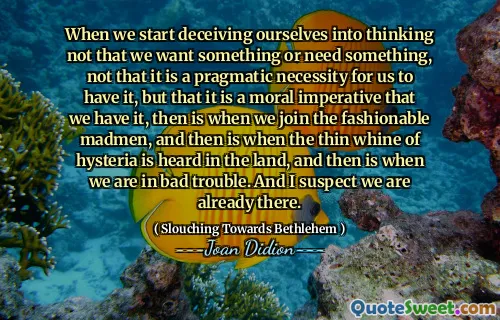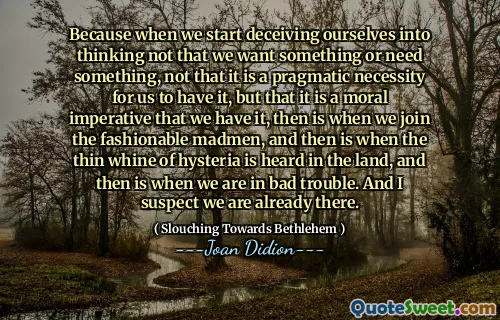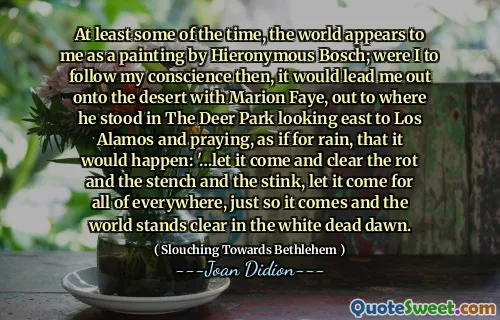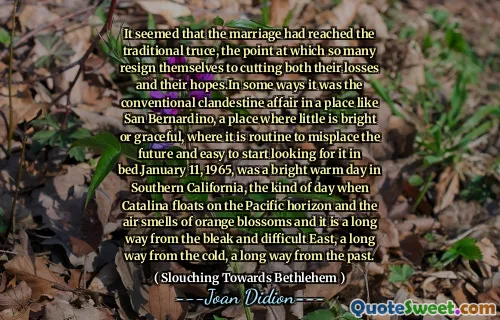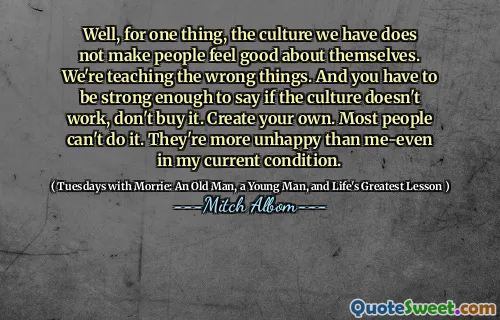
Легко увидеть начало вещей, и труднее увидеть концы. Теперь я помню, с ясностью, которая заставляет нервы в задней части моей шеи напряженными, когда Нью -Йорк начал для меня, но я не могу положить палец на тот момент, когда он закончился, никогда не могу прорезать неясности и вторые старты и разбитые решают точное место на странице, где героиня уже не такая оптимистичная, как когда -то.
(It is easy to see the beginnings of things, and harder to see the ends. I can remember now, with a clarity that makes the nerves in the back of my neck constrict, when New York began for me, but I cannot lay my finger upon the moment it ended, can never cut through the ambiguities and second starts and broken resolves to the exact place on the page where the heroine is no longer as optimistic as she once was.)
Цитата отражается на контрасте между началом и окончаниями, особенно в личном опыте. Спикер вспоминает яркие воспоминания об их прибытии в Нью -Йорк, подчеркивая волнение и потенциал, которые пришли с ним. However, the challenge lies in pinpointing when that initial enthusiasm faded, revealing the complexities of change and the difficulty of identifying a definitive ending moment. This uncertainty echoes a broader theme about life's transitions, where clarity often accompanies new beginnings, while the conclusion remains obscure.
The struggle to identify the exact moment of change emphasizes how life can be filled with ambiguities, making it hard to recognize when optimism transforms into something more subdued. This resonates with the author's personal journey and reflects a universal experience of grappling with the passage of time and the evolution of feelings. Didion's reflection serves as a poignant reminder that while beginnings may be easy to celebrate, endings are often muddled and leave us questioning what we once cherished.
